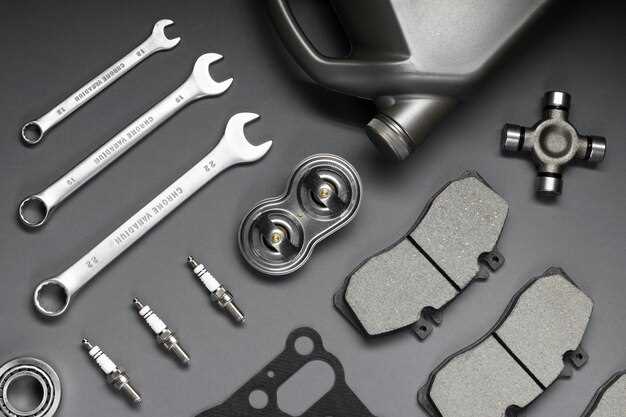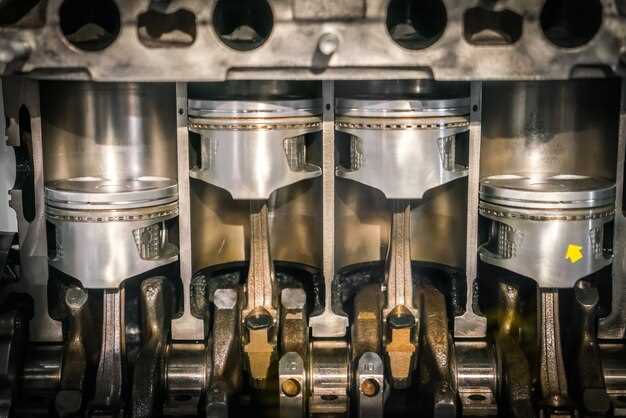When it comes to enhancing the performance of an engine, the choice of pistons plays a crucial role. Aftermarket pistons are engineered to withstand higher stresses and temperatures, making them an essential component in any serious performance build. Selecting the right pistons can significantly impact horsepower, torque, and overall engine longevity.
Understanding the Benefits
Aftermarket pistons are often designed with advanced materials and engineering techniques that improve their strength, reduce weight, and enhance thermal efficiency. This is particularly important in high-performance applications where traditional factory pistons might not suffice. By upgrading to quality aftermarket options, builders can achieve better compression ratios and greater reliability under demanding conditions.
Key Factors to Consider
When choosing the best aftermarket pistons, several factors must be considered, including the engine’s intended use, the power goals, and compatibility with other engine components. Piston weight, design (such as dome shape and skirt length), and the materials used all contribute to performance outcomes. This article aims to provide a comprehensive guide to the top aftermarket pistons available in the market, helping builders make informed decisions tailored to their specific performance needs.
Choosing the Right Piston Material for Your Engine Needs

When building a performance engine, selecting the right piston material is critical for achieving desired power, efficiency, and reliability. The most common materials used for pistons are aluminum, forged steel, and cast iron, each with its unique properties and applications.
Aluminum is the most popular choice for high-performance applications due to its low weight and excellent thermal conductivity. Aluminum pistons can dissipate heat quickly, which helps reduce the risk of overheating and increases engine longevity. Additionally, aluminum allows for more intricate designs, enabling manufacturers to create pistons with optimized shapes that improve combustion efficiency. However, they may not be suitable for extremely high boost or nitrous applications without proper reinforcement.
Forged steel pistons offer superior strength and are often used in engines that experience extreme stress and high horsepower levels. They are less prone to expansion and warping under high temperatures compared to aluminum pistons. This durability makes them an ideal choice for racing engines or applications that require sustained high RPMs. On the downside, forged steel is typically heavier, which can impact performance in some scenarios.
Cast iron pistons, while less common in performance builds, provide excellent wear resistance and durability. They are typically used in street applications or budget-conscious builds. Cast iron can withstand higher temperatures but lacks the thermal conductivity of aluminum, which may lead to overheating in high-performance environments. For most enthusiasts, cast iron is an economical choice but may not deliver the performance gains seen with aluminum or forged materials.
Another important factor to consider is the piston design, as this can influence the engine’s ability to handle power. Forged pistons generally come with features such as thicker skirts and specific coatings to enhance wear resistance and reduce friction. When choosing a piston, also consider the specific needs of your engine, such as boost levels, intended use (street vs. track), and overall engine configuration.
Ultimately, the right piston material should align with the performance goals of your engine build. Understanding the characteristics of aluminum, forged steel, and cast iron will help you make an informed decision that balances performance, weight, and durability for optimal results.
Understanding Compression Ratios and Their Impact on Performance
Compression ratio is a critical aspect of engine performance, defined as the ratio of the maximum to minimum cylinder volume in an engine. It plays a significant role in determining engine efficiency, power output, and overall performance. A higher compression ratio generally leads to increased thermal efficiency, allowing the engine to extract more energy from the fuel during combustion.
When the compression ratio increases, the air-fuel mixture is compressed to a smaller volume, leading to a rise in temperature and pressure within the cylinder. This allows for more complete combustion, resulting in greater power production. However, there is a threshold beyond which additional compression can lead to undesirable effects, such as knocking or detonation. This occurs when the fuel-air mixture ignites prematurely due to excessive heat and pressure, potentially damaging the engine.
Different fuels have varying resistance to knock, often characterized by their octane rating. Higher compression ratios typically require fuels with higher octane ratings to prevent knocking, making it essential to match the compression ratio with the appropriate fuel type. For performance builds, selecting aftermarket pistons with a higher compression ratio can enhance horsepower and torque but must be balanced with fuel requirements and engine tuning.
Moreover, achieving the optimal balance between compression ratio, ignition timing, and fuel type is vital for maximizing performance. Advanced engine management systems can help tune these parameters, allowing for the full potential of the engine to be realized without compromising reliability. Therefore, understanding the implications of compression ratio adjustments is key when selecting aftermarket pistons for performance engine builds, as it directly influences performance outcomes.
Top Brands and Models of Aftermarket Pistons for Different Engine Types

When selecting aftermarket pistons for performance engine builds, several brands stand out due to their reputation for quality, performance, and durability. Below are some of the top brands and their notable models tailored for various engine types.
1. Wiseco – Wiseco is known for its premium forged pistons that cater to both naturally aspirated and forced induction engines. Their M-Series pistons are particularly popular among enthusiasts for high-performance applications, offering enhanced strength and reduced weight, which leads to better acceleration.
2. JE Pistons – JE is renowned for custom piston designs. Their Pro Series pistons are specifically crafted for racing applications. They provide excellent thermal stability and are available in various compression ratios, catering to both street and race setups.
3. Mahle – Mahle is a leader in the performance piston market, offering both forged and cast pistons. Their Performance Series pistons are designed with advanced ring technology that helps reduce friction and wear while maintaining high durability, making them suitable for both turbocharged and naturally aspirated engines.
4. Eagle Specialty Products – Known for producing components that balance performance with affordability, Eagle’s Forged Piston Kits are designed for high-performance applications. Their pistons are crafted to withstand significant pressure, making them ideal for both street racing and off-road vehicles.
5. Probe Industries – Probe offers a wide range of high-performance pistons. Their H Series pistons are known for their strength and lightweight build, which helps in improving throttle response and power output, suitable for racing engines where maximum efficiency is crucial.
6. CP Pistons – CP Pistons is celebrated for its custom solutions and innovative designs. Their XSR Series pistons are engineered for high boost applications, featuring specific designs that enhance strength while minimizing weight, making them excellent for both drag and circuit racing.
7. Darton Sleeves – Although primarily known for sleeving and cylinder solutions, Darton also offers high-performance pistons that work seamlessly with their sleeves. Their Custom Forged Piston Sets are tailored for high horsepower applications, ensuring reliability in extreme conditions.
Choosing the right piston brand and model is crucial for optimizing engine performance. Evaluating engine type, desired power goals, and application (street or track) will guide enthusiasts in selecting the most appropriate aftermarket pistons for their builds.

